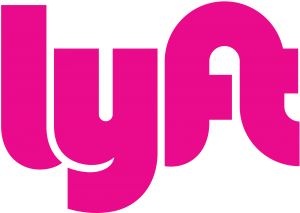Conscious capitalism demands that truly sustainable businesses offer meaning and connection to all stakeholders — including employees, customers, and partners. This is true for all types of companies, but it’s especially important for mission-driven startups, because they face a prime opportunity to get this element right from the beginning. The great news is that creating a meaningful workplace and contribution to the world by honoring relationships doesn’t have to cost a thing. It’s just a matter of being real from the beginning, trusting that authenticity is good for business, and being rigorous and disciplined in manifesting that authenticity.
I’ve gathered three important lessons from my work as a consultant to iconic, smart companies that know how to be real. These three principles that I’ve seen in action at Lyft, Food52, and JetBlue can help companies of any size succeed: Know who you are, speak in a real voice, and empower employees to be brand ambassadors.
1) Know Who You Are: Lyft Drives Its Values Right to the Bank
The ride-sharing market is worth billions. First Uber became the quintessential disruptor, throwing the tired old yellow-cab model into a tizzy. Then along came Lyft, the San Francisco-based ride-sharing company identified by a glowing pink moustache on the front dash. Lyft quickly started throwing serious shade at Uber, the most valuable startup on earth. How did they do it?
Lyft’s mission is “to reconnect people through transportation and bring communities together.” And as an article in Investopedia says: “ key difference between the two companies’ cultures is that Lyft passengers are encouraged to sit in the front seat and engage in conversation, while Uber operates more like a traditional taxi service, where passengers sit in the back seat and mind their own business.”
Lyft knows who they are, and they are banking on it.
The company’s core values are: Be Yourself, Create Fearlessly, Uplift Others, and Make it Happen (“Now. Life is Short.”). The company welcomes employee dogs to the office (so you can Be Yourself); encourages employees to participate in community service work, including partnering with non-profit and student groups; hires, evaluates, and compensates based on its values; and offers full-time drivers/employees a chance to serve on a rotating “Culture Board.” These are just a few examples of how Lyft is a tightly run rideshare, disciplined about being “who they are.” And so Lyft is able to give its customers more than just a ride. It gives them a place in the world (in the front seat), and an invitation to be part of a real, human relationship. This full-circle feel-good is a direct outcome of their mission. Recent case in point: Lyft pledged $1 million over the next four years to the ACLU after President Trump’s January 2017 executive immigration ban. Not only was this a big hit with customers, but sticking to its values gave the company a serious edge on its competition. A win-win.
2) Speak in a Real Voice: Food52 Reveals the Entrepreneurs Behind the Raw Linen Curtain
Food52, a digital food and lifestyle platform founded by Amanda Hesser and Merrill Stubbs in 2009, is a beacon of authenticity. What started as an online hub for everyday home cooks (all 52 weeks in a year; get it?), is now a booming brand with a line of cookbooks, a podcast, an online store, and over 3 million unique users a month. New York Magazine recently referred to the company as “an empire.” And yet, one of Food52’s official core values is “Personal Touch: We treat everyone in our community with warmth and care, and we make sure they know there are real people behind the scenes.”
Because Hesser and Stubbs began with the desire to “let people know who we are, and what we’re up to. And allow people to make that kind of emotional connection with us,” they started out by writing hand-written thank you notes to their customers. Two thousand of them. These days they And most recently, after the 2016 presidential election, they wrote a note to their subscribers asking them how they can be more inclusive, received 1,000 responses, read them all (!), and came back with a solid list of to-dos.
At the bustling New York City office, this “be real” principle is clearly functioning among the company’s 65 employees as well, whether they’re styling photo shoots, chatting in one of the kitchens, or meeting in the lounge with their laptops. The natural light, big shared desks, simple lines, picnic tables, and cubbies all add to the cozy factor. As Hesser says, “What we’re trying to build is relationships with people.”
And it’s working. Crains just named Food52 one of the fastest growing businesses in New York City.
3) Empower Employees: JetBlue Shows How to Enable Real Brand Ambassadors
JetBlue’s mission is to “Inspire Humanity.” Pretty lofty! But after studying this impressive brand up close by visiting corporate headquarters, getting to know their leaders and crewmembers, and spending a weekend at JetBlue University, I can say that indeed, this is what they work tirelessly to do: to inspire everyone — including customers and crewmembers. But how? JetBlue has all kinds of supportive scaffolding in place to keep employees feeling connected to the company’s mission, but my favorite is one of their branded principles they call “JetGrey.” This is the name of that unscripted space, the blurry boundary, the unforeseen opportunity to infuse some real, live, JetBlue inspiration into a human relationship. Stories of JetGrey in action abound amongfrom someone at the ticket counter offering to watch a frazzled mom’s kids so she could get a cup of coffee to a vice president offering to send a used sewing machine to Ecuador because “you’re airline that’s supposed to help people, right?” These JetGrey moments require crewmembers to feel empowered.
Because JetGrey moments don’t come straight out of the employee handbook, they can be risky for a large company to allow and encourage. But JetBlue’s leaders know that by trusting their 19,000 crewmembers to be real, they are unleashing an empowered workforce to pass on the company’s mission — one relationship at a time.
Bring authenticity to your company—now.
The truth of the matter is that authenticity is no longer a box to check for today’s workforce or consumer. It’s a way of life. And there’s no other way to run a successful business. So if a social enterprise is serious about starting up right, my advice is: don’t do a thing until you know who you are, how to broadcast it, and have a plan in place for empowering every single person involved with bringing their very best, most real selves to work. Because honoring relationships is good for people, great for business, and just might change the world.






